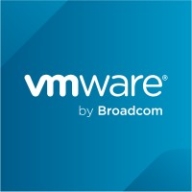


Find out what your peers are saying about Microsoft, Amazon Web Services (AWS), Red Hat and others in PaaS Clouds.
| Product | Market Share (%) |
|---|---|
| Amazon AWS | 13.6% |
| Red Hat OpenShift | 11.6% |
| Pivotal Cloud Foundry | 8.9% |
| Other | 65.9% |



| Company Size | Count |
|---|---|
| Small Business | 131 |
| Midsize Enterprise | 48 |
| Large Enterprise | 112 |
| Company Size | Count |
|---|---|
| Small Business | 5 |
| Large Enterprise | 11 |
| Company Size | Count |
|---|---|
| Small Business | 17 |
| Midsize Enterprise | 4 |
| Large Enterprise | 40 |
Amazon Web Services (AWS) is an adopted cloud platform that offers more than 200 fully featured services from data centers located across the globe. This is a scalable, low-cost infrastructure platform in the cloud that is utilized by thousands of businesses of different sizes around the world. The product offers a wide variety of solutions for its customers, which allows them to launch applications regardless of their industry.
The most common use cases for AWS are:
Amazon AWS supports a global cloud infrastructure with AWS Region and Availability Zone models, which contribute to the high availability of enterprise applications running on the solution. Amazon AWS has an extensive array of products that serve different purposes, including:
The products and services that Amazon AWS delivers to these sectors provide a large computing capacity which is quicker and cheaper compared to building a physical server farm. Among the most popular services are Amazon Elastic Compute Cloud, also known as "EC2," and Amazon Simple Storage Service, also known as "S3."
Amazon AWS Features
The wide array of products that Amazon AWS offers consist of different functions that utilize cloud computing across different sectors. The features of this solution can be categorized in the following ways:
Amazon AWS Benefits
This product delivers various benefits across all industries that utilize its services. The greatest advantages of using Amazon AWS include:
Reviews from Real Users
Greg G., a chief executive officer at a tech services company, ranks Amazon AWS highly, as he states that the solution is flexible, scales well, and offers good stability.
A technology manager technology at a computer software company values Amazon AWS because it is extremely cost-efficient, easy to upgrade and expand storage with greatly improved interfaces.
Pivotal Cloud Foundry (PCF) is the leading enterprise PaaS, powered by Cloud Foundry. PCF provides a cloud-native application platform that allows you to continuously deliver any app to every major private and public cloud with a single platform. PCF is proven to accelerate feature delivery with higher developer productivity and a 200:1 developer to operator ratio. PCF's built-in security and self-healing capabilities reduce risk in your app portfolio while maintaining high-availability at scale to keep customer facing systems online even in the most challenging circumstances. pivotal.io
Red Hat OpenShift offers a robust, scalable platform with strong security and automation, suitable for container orchestration, application deployment, and microservices architecture.
Designed to modernize applications by transitioning from legacy systems to cloud-native environments, Red Hat OpenShift provides powerful CI/CD integration and Kubernetes compatibility. Its security features, multi-cloud support, and source-to-image functionality enhance deployment flexibility. While the GUI offers user-friendly navigation, users benefit from its cloud-agnostic nature and efficient lifecycle management. However, improvements are needed in documentation, configuration complexity, and integration with third-party platforms. Pricing and high resource demands can also be challenging for wider adoption.
What are the key features of Red Hat OpenShift?Red Hat OpenShift is strategically implemented for diverse industries focusing on container orchestration and application modernization. Organizations leverage it for migrating applications to cloud-native environments and managing CI/CD pipelines. Its functionality facilitates efficient resource management and microservices architecture adoption, supporting enterprise-level DevOps practices. Users employ it across cloud and on-premises platforms to drive performance improvements.